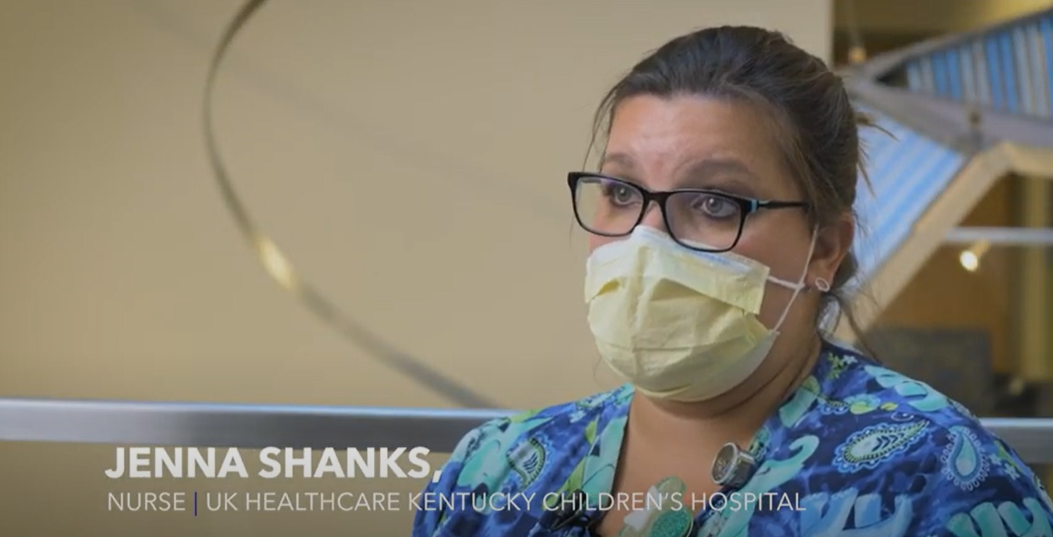Voices from the Front Lines: Jenna Shanks

We recently joined hospital staff for a few days to document the reality of treating COVID-19 patients in UK HealthCare clinical settings.
This edited interview is part of our ongoing series, “UK HealthCare: Voices from the Front Lines,” highlighting stories and perspectives from our frontline staff who have been caring for the sickest COVID-19 patients since March 2020.
Jenna Shanks, RN, has been a nurse in the Kentucky Children’s Hospital acute care department for more than three years.
What’s something you really enjoy about your job?
Oh my gosh, it's my passion. Working with kids is something I've always wanted to do and seeing them, especially in acute care, I see them at their healthiest and sickest. So, I'm able to see them right before they go home and to just be able to provide the care and the things that they need to help the parents get them there.
What was it like here before the pandemic?
I would start my morning off with my assessments to check on the patients and their family, see if they needed anything, make sure they got their medicines and their IV fluids. I was able to spend a lot of time talking with and communicating with families and providing them care behind the scenes.
How have things changed since COVID?
It's more hectic, more busy. To be honest, it's scary. I try to give it my all and give families and patients that behind the scenes, normal conversation. And I don't feel like I'm able to give that as much, but I still definitely try my best to do the conversing because they need it.
How have things changed specifically for your younger patients?
If a patient is COVID-positive, the patient is allowed to have one parent at bedside. The parent or the patient are not allowed to step out of the room, so they rely on us to bring them all the things, whether it be an extra blanket or something to eat or drink.
So, they're very scared. Of course, parents would do anything to trade places with their kiddo, no matter what the situation is. And especially with COVID, you don't know what way the patient is going to go. The unknown is what terrifies parents.
What’s been the most difficult part of working through the pandemic?
Honestly, I think the mental aspect of everything; the tension is so high, everybody's stressed. I mean, I really think we've had sicker kids this time around with this Delta variant than I've seen in the three-and-a-half years that I've been here. So, we're having higher acuity levels. When you have higher acuity levels, you usually have more nurses and more nurses. But with having less staff and higher acuity levels, you're basically giving it your all … but at the same time, you almost feel like you're running in circles more or less because it's just busy. It's very busy.
What would you like people outside the hospital to know?
We wear our masks for 12 hours. We have COVID-positive patients. We are doing what we can to protect others. Those who work from home or aren't in the public much, they may not see what we see. It's definitely real. It's scary.




